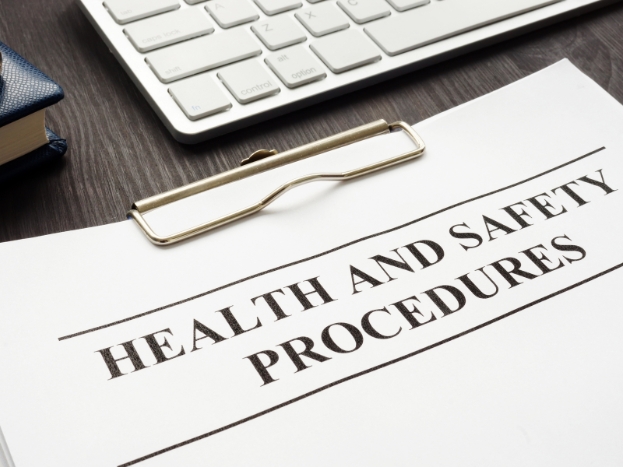Traveling to different countries exposes you to various health and safety environments, each governed by specific laws and regulations. Understanding these international health and safety laws is crucial for ensuring your well-being while abroad. This article explores the key health and safety laws that travelers should be aware of and provides tips on how to stay safe and compliant during your travels. Learning more with visa.javanet247
1. Overview of International Health and Safety Laws
International health and safety laws are designed to protect travelers and local populations from health risks and ensure a safe travel experience. These laws encompass a wide range of regulations, including vaccination requirements, food and water safety standards, emergency medical services, and environmental health standards.
2. Vaccination Requirements and Health Certificates
Many countries have specific vaccination requirements that travelers must meet before entering:
- Mandatory Vaccinations: Some countries require proof of vaccination against certain diseases, such as yellow fever, polio, or hepatitis A and B. You may need to present an International Certificate of Vaccination or Prophylaxis (ICVP) upon arrival.
- COVID-19 Regulations: In the wake of the COVID-19 pandemic, many countries have implemented specific requirements for vaccination or negative test results. These regulations are frequently updated, so it’s essential to check the latest guidelines before your trip.
- Health Certificates: Some countries require a health certificate from a certified medical professional, confirming that you are free from contagious diseases. This is particularly important for long-term travelers, students, or expatriates.
3. Food and Water Safety Standards
Ensuring the safety of food and water is a key concern for travelers, especially in developing countries:
- Food Safety Laws: Many countries have strict regulations on the handling, preparation, and sale of food to prevent foodborne illnesses. Travelers should be aware of these standards and avoid consuming food from unregulated sources.
- Water Quality Regulations: In some countries, tap water may not meet safety standards for drinking. It’s important to know whether you should stick to bottled water or use water purification methods during your stay.
4. Environmental Health and Safety Regulations
Travelers should also be aware of the environmental health laws in their destination:
- Air Quality Standards: In regions with high pollution levels, governments may enforce air quality standards and issue advisories for vulnerable populations, including travelers.
- Waste Management Laws: Proper waste disposal is critical for maintaining public health. Be mindful of local waste management regulations to avoid penalties and reduce your environmental impact.
- Natural Disaster Preparedness: Some regions are prone to natural disasters such as earthquakes, hurricanes, or floods. Governments often have laws and guidelines in place to protect residents and travelers, including evacuation procedures and emergency shelters.
5. Access to Emergency Medical Services
Understanding the availability and legal framework of emergency medical services in your destination is crucial:
- Public vs. Private Healthcare: The quality and accessibility of healthcare can vary widely between public and private facilities. In some countries, travelers are advised to seek medical care from private hospitals due to better resources and English-speaking staff.
- Emergency Contact Numbers: Familiarize yourself with the local emergency numbers (e.g., 112 in Europe, 911 in the U.S.) and know how to access emergency medical services if needed.
- Travel Insurance Requirements: Some countries require travelers to have travel insurance that includes medical coverage. Ensure your insurance meets local legal requirements and provides adequate coverage for potential health emergencies.
6. Legal Considerations for Health and Safety During Travel
Travelers should also be aware of legal considerations related to health and safety:
- Quarantine Laws: During outbreaks of infectious diseases, countries may impose quarantine laws requiring travelers to isolate for a specific period upon arrival. Compliance with these laws is mandatory to avoid legal repercussions.
- Prescription Medications: If you need to travel with prescription medications, research the legal status of those medications in your destination country. Some countries have strict regulations regarding the import of certain drugs, even if they are legal in your home country.
- Personal Safety Laws: Familiarize yourself with local laws regarding personal safety, such as rules on wearing seat belts, using helmets while riding motorcycles, and regulations for outdoor activities like hiking or diving.
7. Staying Informed and Prepared
To ensure compliance with international health and safety laws, take the following steps:
- Research Your Destination: Before traveling, research the health and safety regulations of your destination country. Government websites, such as those of the World Health Organization (WHO) or the Centers for Disease Control and Prevention (CDC), are reliable sources of information.
- Consult Healthcare Providers: Visit a travel clinic or your healthcare provider to discuss recommended vaccinations, medications, and other precautions based on your destination.
- Prepare a Health Kit: Pack a travel health kit that includes basic medical supplies, prescription medications, and any necessary documentation, such as vaccination certificates.
- Stay Updated on Local Laws: Laws and regulations can change rapidly, especially in response to health crises. Stay informed about any updates during your trip and be prepared to adapt your plans if necessary.
8. Health and Safety Resources for Travelers
Utilize available resources to stay informed and protected:
- Travel Advisories: Government travel advisories often include health and safety warnings. Check these regularly before and during your trip.
- Health Apps: Consider using mobile apps that provide up-to-date information on local health conditions, medical facilities, and emergency contacts.
- Embassy Support: In case of health emergencies, your country’s embassy or consulate can offer assistance, including information on local healthcare providers and legal support.
Conclusion
Understanding international health and safety laws is essential for a safe and enjoyable travel experience. By staying informed and prepared, you can protect your health, comply with local regulations, and respond effectively to any emergencies that arise during your trip. Always prioritize your well-being and take proactive steps to ensure a safe journey.

